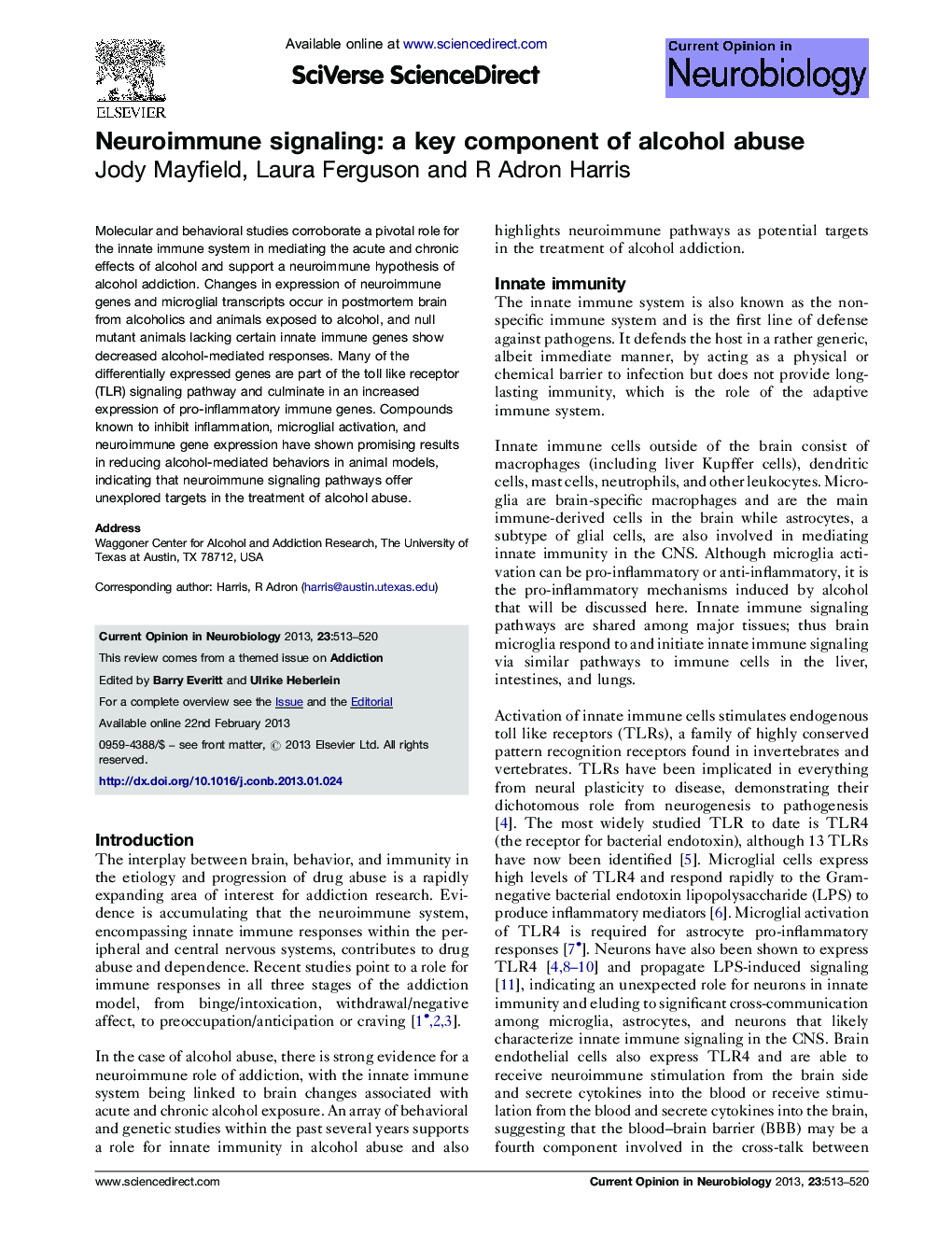| Article ID | Journal | Published Year | Pages | File Type |
|---|---|---|---|---|
| 6267087 | Current Opinion in Neurobiology | 2013 | 8 Pages |
Molecular and behavioral studies corroborate a pivotal role for the innate immune system in mediating the acute and chronic effects of alcohol and support a neuroimmune hypothesis of alcohol addiction. Changes in expression of neuroimmune genes and microglial transcripts occur in postmortem brain from alcoholics and animals exposed to alcohol, and null mutant animals lacking certain innate immune genes show decreased alcohol-mediated responses. Many of the differentially expressed genes are part of the toll like receptor (TLR) signaling pathway and culminate in an increased expression of pro-inflammatory immune genes. Compounds known to inhibit inflammation, microglial activation, and neuroimmune gene expression have shown promising results in reducing alcohol-mediated behaviors in animal models, indicating that neuroimmune signaling pathways offer unexplored targets in the treatment of alcohol abuse.
⺠Alcohol exposure causes differential expression of neuroimmune genes. ⺠Genetic deficiency of innate immune genes reduces alcohol action. ⺠Toll like receptor signaling mediates alcohol action and produces pro-inflammatory gene expression. ⺠Anti-inflammatory compounds show potential for treating the neuroimmune component of alcohol abuse. ⺠Innate immune signaling mediates alcohol action, suggesting a neuroimmune hypothesis of alcohol addiction.
